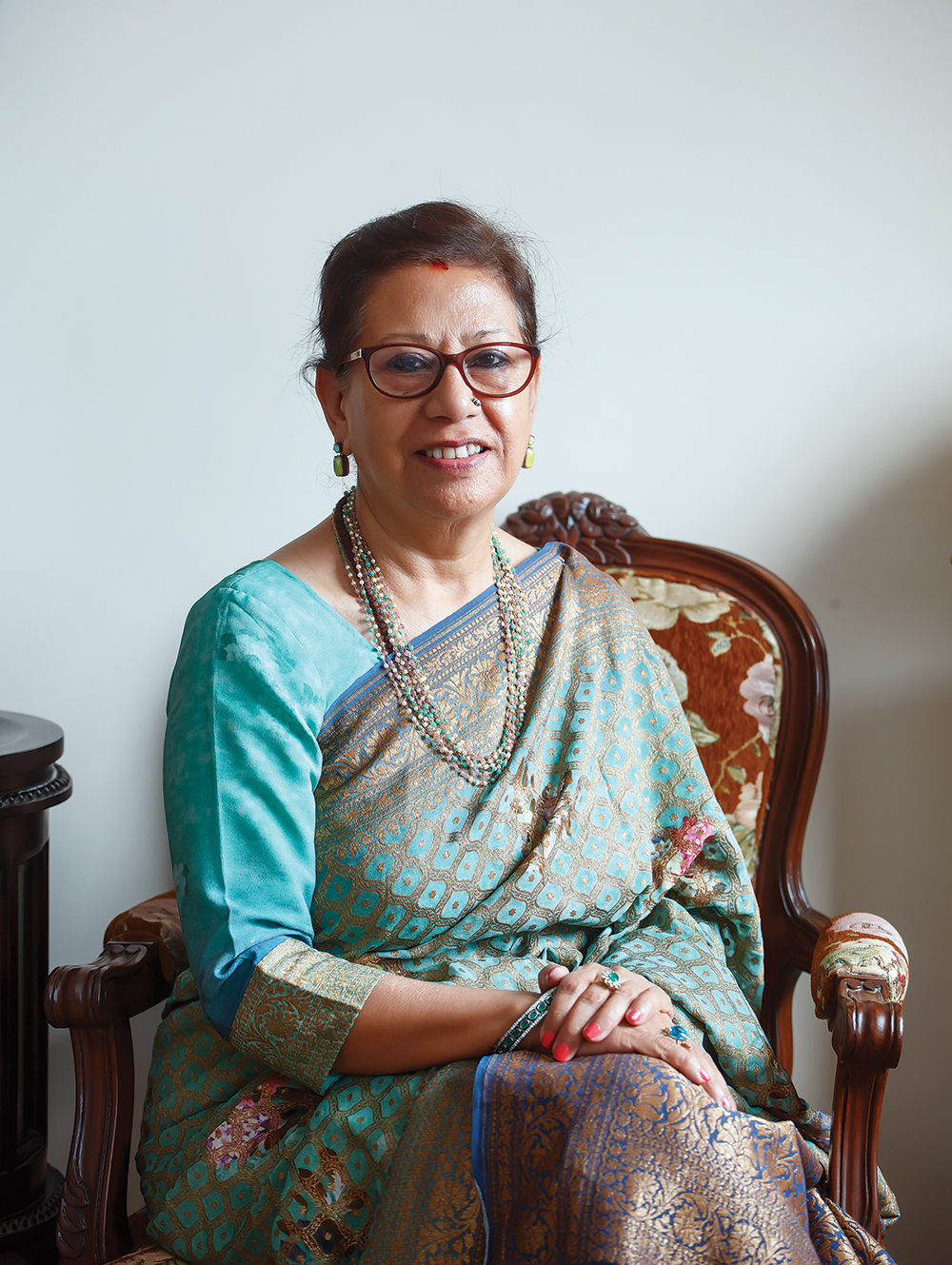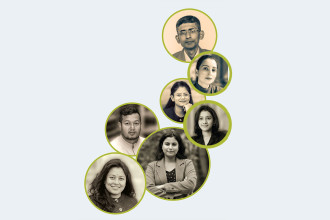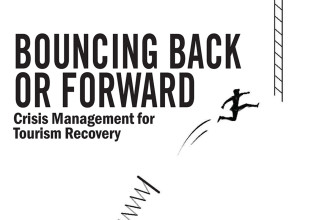
As per a recent Gender Parity Index (GPI) report, in 2022, gender parity in the labour force stands at 62.9%, the lowest level registered since the index was first compiled. Among workers who remained in the labour force, unemployment rates increased and have remained consistently higher for women. The index benchmarks national gender gaps on economic, political, education, and health-based criteria.
Gender parity means that each gender is represented equally. It is an instrument at the service of equality which consists in ensuring the access of all genders to the same opportunities, rights, opportunities to choose, material conditions while respecting their specificities.
What we have to understand is that a GPI equal to one signifies equality between males and females. A GPI less than one is an indication that gender parity favours males while a GPI greater than one indicates gender parity that favours females. The closer a GPI is to one, the closer a country is to achieving equality of access between males and females.
In the Gender Gap Index 2022, Nepal scored 0.692 for gender parity. The country performed best in the political empowerment dimension with a score of 58 out of 146. In terms of Economic Participation and Opportunity, the country ranks 98 and 125 in Educational Attainment.
Women in Nepal face multiple difficulties in starting a business or scaling one due to a deep-rooted patriarchal mindset. From obtaining loans from banks and financial institutions to the types of business they are stereotyped to be in and access to markets, skills, laws, women entrepreneurship has not flourished as it could in the country.
In this edition of Business 360, we spoke to a few women business leaders on how we could have more women opening their own enterprises or getting involved in various careers of their choice, or scaling their businesses.
 To motivate and influence more and more women into entrepreneurship various factors play a key role.
There is a need to create better access to finance for women entrepreneurs. Just having financial schemes for women is not enough but a purposeful implementation of those schemes is important.
Policies motivating women to become financial investors handling different types of credit, including equity, debt and grant funds to support other women entrepreneurs are also important.
Support services such as training and technical assistance should also be provided so that women entrepreneurs can be equipped with skills and knowledge to enable growth in their businesses along with financial support, which could eventually increase the number of women entrepreneurs.
To motivate and influence more and more women into entrepreneurship various factors play a key role.
There is a need to create better access to finance for women entrepreneurs. Just having financial schemes for women is not enough but a purposeful implementation of those schemes is important.
Policies motivating women to become financial investors handling different types of credit, including equity, debt and grant funds to support other women entrepreneurs are also important.
Support services such as training and technical assistance should also be provided so that women entrepreneurs can be equipped with skills and knowledge to enable growth in their businesses along with financial support, which could eventually increase the number of women entrepreneurs.
 We all admit that challenges exist whether starting an enterprise or during her career as a woman. Some of the areas that need to be addressed are:
Skill enhancement: In a country like ours, there is a need for more experts in the market with specific skill sets. As we add more skills to a woman’s career, the returns will be profound. More opportunities are bound to open, domestic and international footprint will increase and returns for the employers will grow which in turn will help increase the overall market size.
Promote mentorship and networking: Mentorship and networking are no doubt very critical aspects in any career path but more than that, a platform or ecosystem where the process is simplified and verified seems to be the need of the hour.
We all admit that challenges exist whether starting an enterprise or during her career as a woman. Some of the areas that need to be addressed are:
Skill enhancement: In a country like ours, there is a need for more experts in the market with specific skill sets. As we add more skills to a woman’s career, the returns will be profound. More opportunities are bound to open, domestic and international footprint will increase and returns for the employers will grow which in turn will help increase the overall market size.
Promote mentorship and networking: Mentorship and networking are no doubt very critical aspects in any career path but more than that, a platform or ecosystem where the process is simplified and verified seems to be the need of the hour.
 Before prescribing new solutions to the issue of gender parity, we should thoroughly examine and dissect the existing foundation that is built on unconscious biases and social conditioning that promotes patriarchal leadership. As a woman entrepreneur and researcher, it has been challenging for me to navigate around the conventional definition of a leader that is designed mainly from the examples of ‘men leaders’ – ‘commanding, objective, go-getter, not vulnerable, out-spoken, etc.’. It seems there is no definition of where women leaders can fit in and not feel judged as – ‘bossy, not like a woman, too loud, too meek, etc.’. These foundational biases should be accounted for while designing any policy, law or solution to bridge the gender parity gap.
We can encourage women to overcome an inertial force against starting their own businesses by putting bandaids on superficial issues like registration, seed funds and skill training. However, this does not ensure the long-term growth and scalability of their enterprises. Many women entrepreneurs reach an impasse in their entrepreneurial/professional journey that hinders their growth due to lack of investment, mentorship, business network, guidance and support from the family. In a society where women are seen as economic liabilities, we cannot expect more women to take financial risks. Unfair property rights reinforce this idea making it challenging for women to take loans and seek investments without collateral. Unlike most men, women do not have a financial cushion of family property to fall back on. While there are provisions of collateral-free loans for women entrepreneurs, various bureaucratic red tapes and discouraging bank procedures make it impossible for women micro-entrepreneurs to obtain this loan. Provisions to use other tools like psychometric assessments and lending models like asset financing and core group guarantee should be implemented to gauge the creditworthiness of a woman entrepreneur in the absence of collateral.
Before prescribing new solutions to the issue of gender parity, we should thoroughly examine and dissect the existing foundation that is built on unconscious biases and social conditioning that promotes patriarchal leadership. As a woman entrepreneur and researcher, it has been challenging for me to navigate around the conventional definition of a leader that is designed mainly from the examples of ‘men leaders’ – ‘commanding, objective, go-getter, not vulnerable, out-spoken, etc.’. It seems there is no definition of where women leaders can fit in and not feel judged as – ‘bossy, not like a woman, too loud, too meek, etc.’. These foundational biases should be accounted for while designing any policy, law or solution to bridge the gender parity gap.
We can encourage women to overcome an inertial force against starting their own businesses by putting bandaids on superficial issues like registration, seed funds and skill training. However, this does not ensure the long-term growth and scalability of their enterprises. Many women entrepreneurs reach an impasse in their entrepreneurial/professional journey that hinders their growth due to lack of investment, mentorship, business network, guidance and support from the family. In a society where women are seen as economic liabilities, we cannot expect more women to take financial risks. Unfair property rights reinforce this idea making it challenging for women to take loans and seek investments without collateral. Unlike most men, women do not have a financial cushion of family property to fall back on. While there are provisions of collateral-free loans for women entrepreneurs, various bureaucratic red tapes and discouraging bank procedures make it impossible for women micro-entrepreneurs to obtain this loan. Provisions to use other tools like psychometric assessments and lending models like asset financing and core group guarantee should be implemented to gauge the creditworthiness of a woman entrepreneur in the absence of collateral.
Chhaya Sharma
Founder & Chairperson
Nepal College of Travel and Tourism Management
 To motivate and influence more and more women into entrepreneurship various factors play a key role.
There is a need to create better access to finance for women entrepreneurs. Just having financial schemes for women is not enough but a purposeful implementation of those schemes is important.
Policies motivating women to become financial investors handling different types of credit, including equity, debt and grant funds to support other women entrepreneurs are also important.
Support services such as training and technical assistance should also be provided so that women entrepreneurs can be equipped with skills and knowledge to enable growth in their businesses along with financial support, which could eventually increase the number of women entrepreneurs.
To motivate and influence more and more women into entrepreneurship various factors play a key role.
There is a need to create better access to finance for women entrepreneurs. Just having financial schemes for women is not enough but a purposeful implementation of those schemes is important.
Policies motivating women to become financial investors handling different types of credit, including equity, debt and grant funds to support other women entrepreneurs are also important.
Support services such as training and technical assistance should also be provided so that women entrepreneurs can be equipped with skills and knowledge to enable growth in their businesses along with financial support, which could eventually increase the number of women entrepreneurs.
"There is a need to create better access to finance for women en-trepreneurs. Just having financial schemes for women is not enough but a purposeful implementation of those schemes is important."We need to leverage technology to create better access to the market, knowledge, tools and finance. More women are using technology tools today to communicate and do business. Intuitive technology platforms that inform and enable women to learn, use tools, network and connect, and access funding can be very powerful to overcome the barriers of access that many women face today. Create support structures that give them room to grow their business. Flexible working hours are very important. They need support around child and house care to successfully manage their business and work. Women entrepreneurs require support in the form of flexible interest rates and loan repayment from banks, followed by tax exemption and subsidies. As women hesitate to take risks there is a need to develop comprehensive recovery and relief packages to address disaster risk reduction and management in general.
Karvika Thapa
CEO, KimbuTech; Chairperson, Simjung;
Director, VS International College
 We all admit that challenges exist whether starting an enterprise or during her career as a woman. Some of the areas that need to be addressed are:
Skill enhancement: In a country like ours, there is a need for more experts in the market with specific skill sets. As we add more skills to a woman’s career, the returns will be profound. More opportunities are bound to open, domestic and international footprint will increase and returns for the employers will grow which in turn will help increase the overall market size.
Promote mentorship and networking: Mentorship and networking are no doubt very critical aspects in any career path but more than that, a platform or ecosystem where the process is simplified and verified seems to be the need of the hour.
We all admit that challenges exist whether starting an enterprise or during her career as a woman. Some of the areas that need to be addressed are:
Skill enhancement: In a country like ours, there is a need for more experts in the market with specific skill sets. As we add more skills to a woman’s career, the returns will be profound. More opportunities are bound to open, domestic and international footprint will increase and returns for the employers will grow which in turn will help increase the overall market size.
Promote mentorship and networking: Mentorship and networking are no doubt very critical aspects in any career path but more than that, a platform or ecosystem where the process is simplified and verified seems to be the need of the hour.
"Loans without collateral and hassle-free implementation can change the course for women doing business. Other options like crowdfunding, venture capital or private equity can provide investment opportunities. Also, working with donor agencies to bring grants and subsidies for women-owned businesses will ease financial hurdles."Remove barriers to entry: Barriers for women's empowerment are deep-rooted due to age-old cultural and societal norms. These are not short-term changes as it takes a generation for norms and traditions to change. It will take some time to change the mindset through awareness, experience and education. So, we all have to come together to make each other better every day. Recognising and rewarding women role models can also have a big impact on changing these norms. Provide financial support: Financial independence of every woman is a critical aspect of women's empowerment and contribution to the economy. Loans without collateral and hassle-free implementation can change the course for women doing business. Other options like crowdfunding, venture capital or private equity can provide investment opportunities. Also, working with donor agencies to bring grants and subsidies for women-owned businesses will ease financial hurdles. One of the missing aspects in our country is there is no support for women entrepreneurship in terms of training, skill development and mentorship. For any business to survive, there needs to be a sustainable ecosystem which in turn can create win-win situations for all parties.
Prativa Pandey, PhD
Founder and CEO
Herveda Botanicals and Catalyst Technology
 Before prescribing new solutions to the issue of gender parity, we should thoroughly examine and dissect the existing foundation that is built on unconscious biases and social conditioning that promotes patriarchal leadership. As a woman entrepreneur and researcher, it has been challenging for me to navigate around the conventional definition of a leader that is designed mainly from the examples of ‘men leaders’ – ‘commanding, objective, go-getter, not vulnerable, out-spoken, etc.’. It seems there is no definition of where women leaders can fit in and not feel judged as – ‘bossy, not like a woman, too loud, too meek, etc.’. These foundational biases should be accounted for while designing any policy, law or solution to bridge the gender parity gap.
We can encourage women to overcome an inertial force against starting their own businesses by putting bandaids on superficial issues like registration, seed funds and skill training. However, this does not ensure the long-term growth and scalability of their enterprises. Many women entrepreneurs reach an impasse in their entrepreneurial/professional journey that hinders their growth due to lack of investment, mentorship, business network, guidance and support from the family. In a society where women are seen as economic liabilities, we cannot expect more women to take financial risks. Unfair property rights reinforce this idea making it challenging for women to take loans and seek investments without collateral. Unlike most men, women do not have a financial cushion of family property to fall back on. While there are provisions of collateral-free loans for women entrepreneurs, various bureaucratic red tapes and discouraging bank procedures make it impossible for women micro-entrepreneurs to obtain this loan. Provisions to use other tools like psychometric assessments and lending models like asset financing and core group guarantee should be implemented to gauge the creditworthiness of a woman entrepreneur in the absence of collateral.
Before prescribing new solutions to the issue of gender parity, we should thoroughly examine and dissect the existing foundation that is built on unconscious biases and social conditioning that promotes patriarchal leadership. As a woman entrepreneur and researcher, it has been challenging for me to navigate around the conventional definition of a leader that is designed mainly from the examples of ‘men leaders’ – ‘commanding, objective, go-getter, not vulnerable, out-spoken, etc.’. It seems there is no definition of where women leaders can fit in and not feel judged as – ‘bossy, not like a woman, too loud, too meek, etc.’. These foundational biases should be accounted for while designing any policy, law or solution to bridge the gender parity gap.
We can encourage women to overcome an inertial force against starting their own businesses by putting bandaids on superficial issues like registration, seed funds and skill training. However, this does not ensure the long-term growth and scalability of their enterprises. Many women entrepreneurs reach an impasse in their entrepreneurial/professional journey that hinders their growth due to lack of investment, mentorship, business network, guidance and support from the family. In a society where women are seen as economic liabilities, we cannot expect more women to take financial risks. Unfair property rights reinforce this idea making it challenging for women to take loans and seek investments without collateral. Unlike most men, women do not have a financial cushion of family property to fall back on. While there are provisions of collateral-free loans for women entrepreneurs, various bureaucratic red tapes and discouraging bank procedures make it impossible for women micro-entrepreneurs to obtain this loan. Provisions to use other tools like psychometric assessments and lending models like asset financing and core group guarantee should be implemented to gauge the creditworthiness of a woman entrepreneur in the absence of collateral.
"In a society where women are seen as economic liabilities, we cannot expect more women to take financial risks. Unfair property rights reinforce this idea making it challenging for women to take loans and seek investments without collateral. Unlike most men, women do not have a financial cushion of family property to fall back on. While there are provisions of collateral-free loans for women entrepreneurs, various bureaucratic red tapes and discouraging bank procedures make it impossible for women micro-entrepreneurs to obtain this loan."Similarly, we need women role models in executive and decision-making positions to encourage more women to aspire to be leaders in the careers of their choice. If there are more female and male champions supporting women’s agenda in decision-making positions, then there is a higher likelihood of gender equality in such organisations – like equal pay for equal qualification, paternity and maternity leave policies, equal treatment, non-tolerance to gender biases, etc. Designing such inclusive workspaces will also create an environment for women to showcase their talent, create impact and get promoted to leadership positions. Similarly, women’s career growth can be accelerated through mentorship and networking platforms that focus on supporting women professionals. We have been creating such platforms for women entrepreneurs through forums like Federation of Woman Entrepreneurs’ Associations of Nepal (FWEAN), Nepalese Young Entrepreneurs’ Forum (NYEF), South Asian Women Development Forum (SAWDF) Nepal, SAARC Chamber Women Entrepreneurs Council Nepal (SWEC) and ZONTA International. These forums and others have been organising professional training, workshops, conferences and expos, and have been advocating for policies conducive to the growth of women entrepreneurs in Nepal. Business incubators, accelerators and industrial villages should also be promoted by the government to support women entrepreneurs. By promoting women’s economic empowerment and women in economic leadership, we can create more women as agents of change in our society. These women leaders will not only lead their organisations, but also promote inclusivity and gender parity in their organisations, thus sparking positive change in their communities and the nation. READ ALSO:
Published Date: January 2, 2023, 12:00 am
Post Comment
E-Magazine
RELATED Opinion





